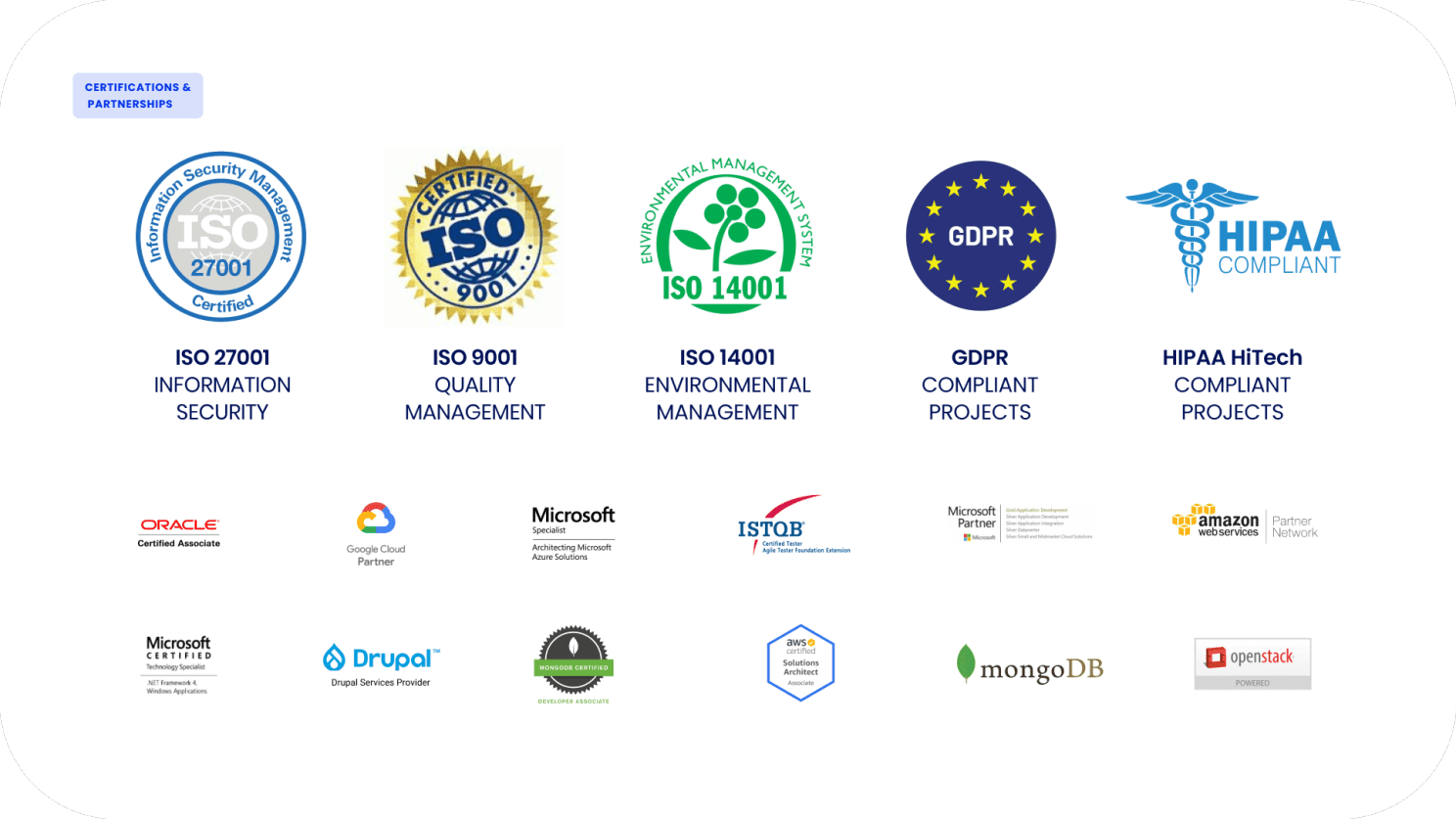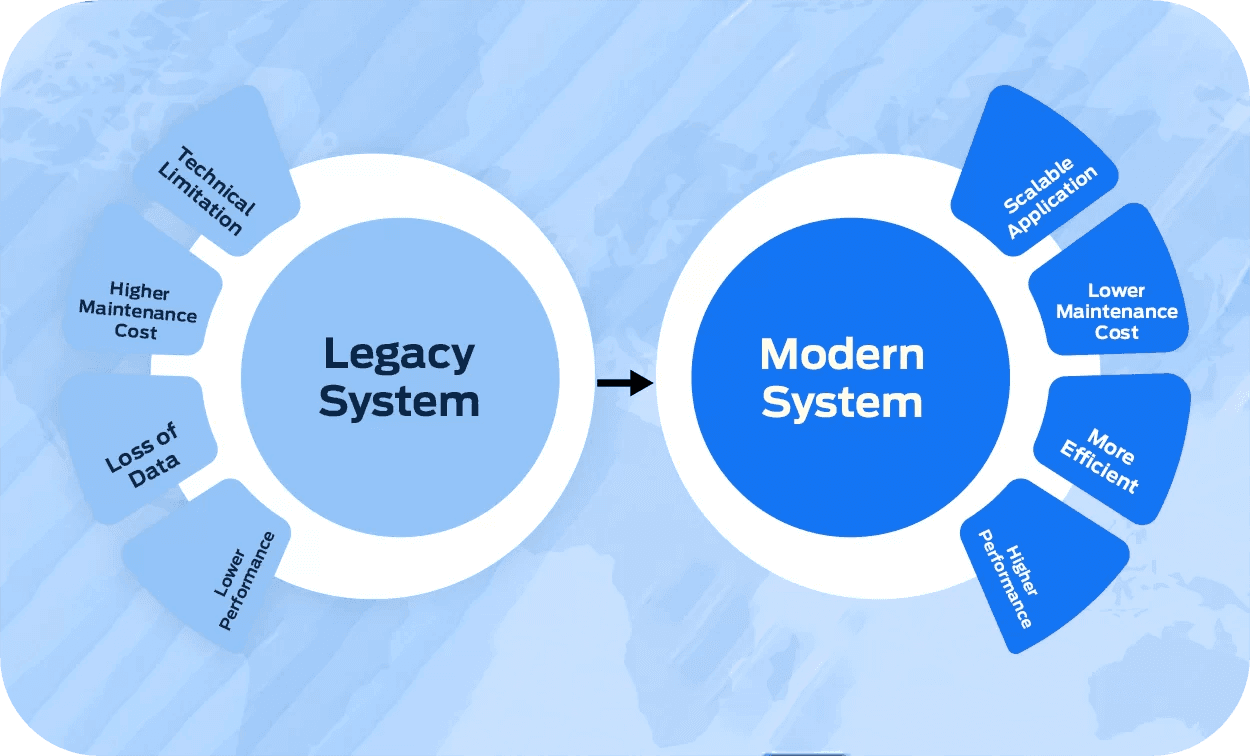Do You Know The Digitalization Struggles of Medium-Sized Companies in Western Europe?

After attending THE GROW AI Summit 2024, we're choosing to be honest with what we've observed across medium-sized businesses in Western Europe.
Despite the clear advantages, including process efficiency and enhanced competitiveness, many leaders might hesitate to embrace digitalization. The reasons behind this reluctance go beyond technological issues like poor internet infrastructure.
Let's examine these concerns and explore the practical solutions we can identify as a company with decades of experience in custom software development.
What's Concerning Decision Makers? An Honest Approach.
❌ Concern #1: High Costs and Uncertain ROI
Cost concerns are a major factor slowing digital adoption. For companies operating on tight margins, digital investments—whether it be new software, hardware, or systems—can seem risky. A study by the European Investment Bank found that around 40% of companies cite financial uncertainty as a barrier to digitalization. These companies often worry about spending significant sums without being sure of the ROI, fearing they won't see the benefits quickly enough.
✔️ Solution: ASSIST Software suggests a phased digitalization approach, allowing businesses to adopt new technologies step by step. Instead of making a large, upfront investment, companies can test smaller solutions, allowing them to see the positive impact and expand from there. This reduces financial risk, makes ROI more visible in the short term, and allows companies to scale at their own pace. In addition, cloud-based models, can reduce hardware costs and allow businesses to only pay for what they use, further minimizing unnecessary expenses.
Read more about cloud adoption:
❌ Concern #2: Organizational Culture and Resistance to Change
Cultural resistance within organizations is another significant hurdle. Many medium-sized companies are family-owned or have operated the same way for decades. This creates a level of comfort with traditional methods, even if they are inefficient. Employees, too, may fear that automation or AI could lead to job losses. On the other hand, leaders may lack the knowledge of digital trends to fully understand how emerging tech could help their business. According to a report by McKinsey, 70% of digital transformation efforts fail due to resistance from within the company.

✔️Solution: ASSIST Software can help by developing user-friendly systems that are intuitive and easy to integrate into existing workflows. By offering custom training programs for employees and strategic change management for leaders, ASSIST ensures a smoother transition from traditional practices to digital tools. This makes the process less daunting and helps employees feel more involved and secure as they gain skills and experience with the new technology.
Additionally, ASSIST can provide visual management tools that allow leadership teams to track digital progress in real time, reinforcing the value of the transformation at every step. Consider it: how about a custom-developed tool to aid both staff and managers alike?
❌ Concern #3: Data Security and Privacy
Data privacy and cybersecurity remain high concerns for companies considering digitalization. With stricter regulations, such as the General Data Protection Regulation (GDPR) in Europe, companies face heavy penalties if they mishandle customer data. The fear of breaches or data loss can feel overwhelming for medium-sized businesses that may not have dedicated IT security teams. In fact, 32% of German companies cite cybersecurity concerns as one of the key reasons they hesitate to adopt new technologies.

✔️Solution: ASSIST has a strong track record in delivering secure custom software that meets all necessary data protection standards. By integrating encryption and multi-factor authentication, ASSIST can ensure that the data companies collect and store is safe from breaches. ASSIST offers GDPR-compliant solutions designed to protect sensitive information and help companies navigate complex regulations and has multiple security company and employee certifications. Implementing secure cloud services and data management frameworks ensures data security while reducing the risk of regulatory non-compliance.
Read more about cybersecurity:
❌ Concern #4: Skills Gap and Talent Shortage
The shortage of digital skills within companies is a growing problem. Many medium-sized businesses struggle to hire well-versed employees to manage or maintain digital systems. The European Commission says nearly 42% of European workers lack basic digital skills. Companies have fewer in-house experts to manage new technology, making digital transformation even more daunting.

✔️Solution: One way to address this is through AI-driven automation. ASSIST Software can develop and deploy AI tools that handle routine tasks, reducing the need for manual labor and freeing up employees for higher-value activities. AI-driven systems can also provide actionable insights into business operations, reducing the need for specialized analysis and making the tools accessible to non-technical staff.
Read more European projects:
❌ Concern 5: Integration with Legacy Systems
Many medium-sized businesses have operated on the same systems for decades. These legacy systems are often deeply embedded in the company's operations, making them difficult to replace. The complexity of integrating new digital tools with older software is a major concern. Over 50% of medium-sized companies list legacy systems as one of their top challenges when attempting digital transformation.

✔️Solution: ASSIST Software has extensive experience in legacy system integration, ensuring that new software works seamlessly with existing infrastructure. Through middleware solutions, ASSIST can bridge the gap between old and new systems, allowing businesses to maintain operational continuity while slowly phasing in new digital tools.
Read more about composable architecture:
If you are looking for digital transformation, we can offer you custom-built software and AI development. The fastest way to reach us is to contact us.
Custom Software Development - ASSIST Software Romania Romania



